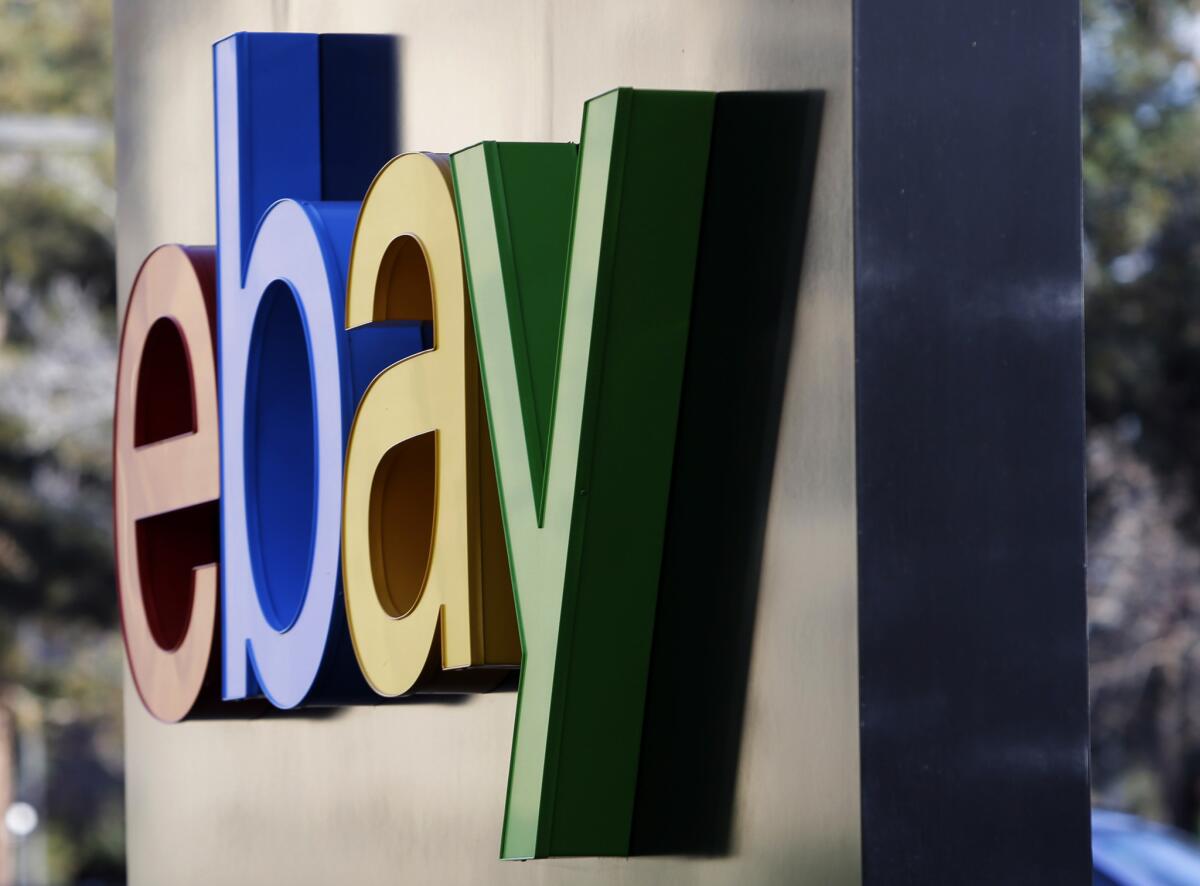How to get started reselling common products on EBay and other sites

- Share via
Lots of people got into reselling common consumer products during the pandemic because of money concerns or too much extra stuff lying around the house they suddenly were stuck inside.
And demand skyrocketed as some goods became difficult to find or new remote-working and remote-schooling needs developed.
There are dozens of websites on which to sell merchandise, whether they’re items you already own or, to take it up a notch, a stream of goods you acquire from somewhere else at a cost that’s low enough to make a profit when you unload it.
There are the big generalists — including EBay, Amazon and wholesale site B-Stock — and a wealth of specialized online marketplaces for books, vintage clothing, jewelry and other things. Most sites have basic get-started guides and communities of sellers that share tips.
Here are some basic questions and answers:
Although all-purpose sales sites like Craigslist and EBay can be good, niche sites can often sell specific types of items faster and with less hassle.
Is this even legal?
As long as the merchandise has been legally purchased, retailers can’t prevent you from selling it again to a different buyer.
Some retailers require resellers to deface labels, bar codes and QR codes. And there have been instances in which brand owners issued cease-and-desist demands, but those appear to have been rare. Hang on to sales receipts, however, just in case.
There is one way folks involved in reselling can get themselves into serious trouble, and that is by not being careful about where they obtain their goods.
Selling fake or stolen items is not only illegal but also wrong and can be downright dangerous. A simple internet search will turn up stomach-churning cases involving counterfeit electronics that were faulty or even fire hazards and bogus brand-name cosmetics containing bacteria and feces.
How do I get products to resell?
Make sure to buy from legitimate sources. One is B-Stock, which acquires its goods at liquidation prices from big-name retailers and websites.
If you plan to buy from wholesaler sites such as B-Stock, you will need a resale certificate with a sales tax number. That allows you to avoid local sales taxes when you buy, which lowers your costs. The resale certificate requirements vary among states, but California and several others accept the Uniform Sales and Use Tax Resale Certificate from the Multistate Tax Commission.
To use a site such as EBay as a reseller, you first have to register by creating a business or personal account. You then decide what you are selling, list it with a description and add a photo.
In November, EBay launched a partnership with wholesale liquidator Bulq that lets resellers tap into items customers returned to Target and other big retailers. Stores often don’t bother returning the items to their own shelves because it’s cheaper to hand them off to a liquidation firm.
Are there big upfront costs?
Not necessarily. Before some people began buying in bulk, by the cargo pallet or truckload, they started out very small.
B-Stock recently surveyed 145 resellers to see how their businesses fared during the 13 months of the pandemic and found that 25% did not require any financial assistance to start their business.
Once your business is underway, other traditional costs can be low, including marketing. Many businesses advertise their resale wares by using their Facebook and Instagram pages.
Many sites charge commissions and fees on sales, which will eat into your profit. And, of course, you’ll need to get the products to the customers, which means shipping.
For reviews of sites and a rundown of costs, check out SideHusl.com, which researches and rates moneymaking opportunities in the gig economy.
Resellers generally need to collect sales tax in their home states and pay income tax on their earnings, although occasional sellers usually get an exemption for activities such as hosting a yard sale at their house.
One reseller, John Traches of Santa Fe Springs, has been running his business, JT Merchandise Outlet, since 1999, but he said the pandemic sparked a lot of additional interest in reselling.
“I just think, because people were not able to get out, they were looking for other ways to make money,” Traches said. “So they’re just getting creative, thinking about what they can buy and then resell, out of their house, online, and I think that definitely has driven the sales up.”
More to Read
Inside the business of entertainment
The Wide Shot brings you news, analysis and insights on everything from streaming wars to production — and what it all means for the future.
You may occasionally receive promotional content from the Los Angeles Times.












